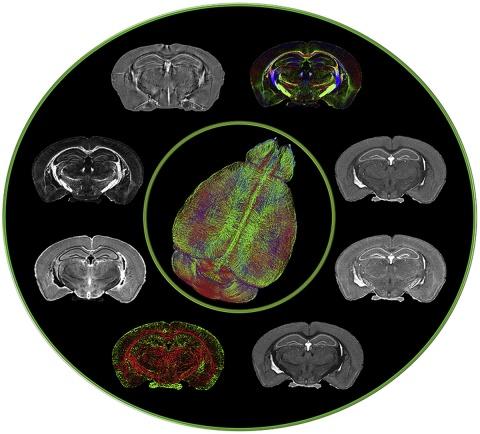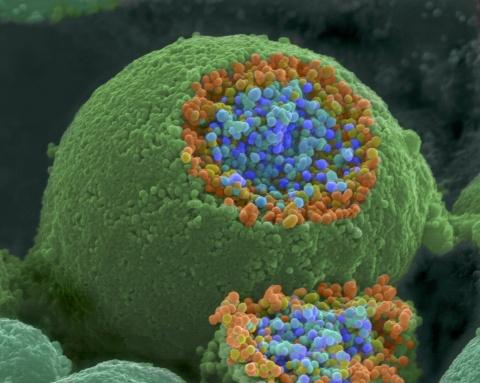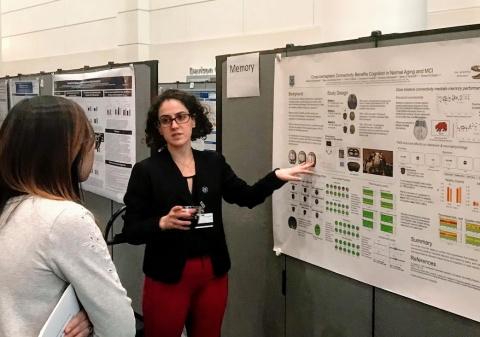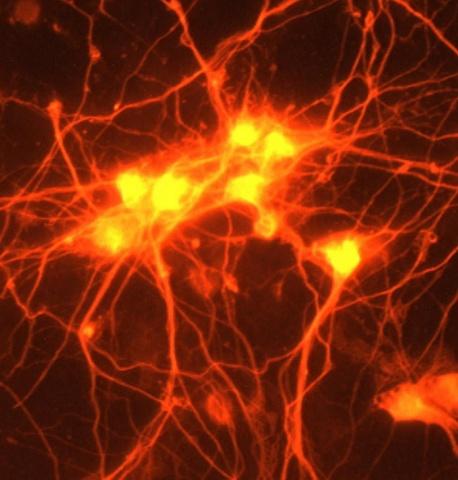Calakos, La Spada awarded distinguished professorships
Nicole Calakos, MD, PhD, and Al La Spada, MD, PhD, have been awarded distinguished professorships from Duke University. Duke University awarded distinguished professors to 28 faculty members this year, with 12 coming from the School of Medicine. Distinguished professorships are awarded to faculty who have demonstrated extraordinary scholarship in advancing science and improving human health.
Postdoc Spotlight: Julia Gamache, PhD
Within the lab of Ornit Chiba-Falek, PhD, Julia Gamache, PhD, is investigating the origins of Alzheimer’s disease (AD)--both the exact genes and cell types in the brain that lead to development of AD, as well as the specific ways that aging contributes to the process. For this week’s “Spotlight” interview, Gamache talks to us about how her research may lead to the development of new therapies to prevent or slow the condition.
Shroff, Chen win Duke's "Outstanding Senior Thesis in Neuroscience" Award
Two undergraduate students working in labs in the Duke Neurology Department were joint recipients of Duke’s 2020 “Outstanding Senior Thesis in Neuroscience” award. Kunal Shroff worked for three years in the lab of Nicole Calakos, MD, PhD, where he studied the molecular mechanisms underlying DYT1 dystonia. Vivian Chen worked in the lab of Ornit Chiba-Falek, MD, PhD, where she helped examine the genetic processes underpinning Alzheimer’s and other age-related neurodegenerative diseases.
Gamache selected for CTSA TL1 award
Julia Gamache, PhD, was one of four new scholars welcomed into the Duke Clinical and Translational Science Award’s (CTSA TL1) programs this April. Gamache, a postdoctoral associate in the Chiba-Falek lab, will use the two-year award to study the origins of Alzheimer’s disease and investigate novel therapeutic strategies for the condition. The Duke CTSA TL1 postdoctoral program is a 2-year training program aiming to provide 2 years of funded time to support the research training of outstanding junior scientists.
Duke Neurology Research Round Up, May 2020
Members of the Duke Neurology Department continued to advance the fields of clinical and translational neuroscience this April. Our faculty contributed to the first major systematic review of self-management programs for epilepsy, helping to answer questions about what makes these programs more or less effective. Another article discussed the benefits of CN-105, a therapeutic agent that may help reduce the harmful neuro-inflammatory response associated with stroke, traumatic brain injury, and other conditions.
Faculty Spotlight: Matthew Scaglione, PhD
As a graduate student, Matthew Scaglione, PhD, became interested in how the body made and destroyed proteins--and how these processes could go wrong in neurodegenerative disease. Now, as an assistant professor at Duke, his research straddles the intersections between neurology, molecular genetics, and microbiology to better understand how we might be able to develop treatments for these conditions.
Duke Neurology Research Round Up, April 2020
What do a genetic analysis of the intersecting pathways between Alzheimer’s disease and depression, a national prize-winning essay examining the ethics of unionization for physicians, and a systematic review of the literature surrounding a new potential form of therapy for stroke recovery have in common? They’re all subjects of peer-reviewed journal articles written or co-written by members of the Neurology Department published this March.
Staff Spotlight: Mariam Hovhannisyan
Mariam Hovhannisyan found her mind turning to cognitive neuroscience as a high school student, when a crime show she was watching prompted her to consider how differences in brain chemistry might lead one person a healthy member of society and another person a serial killer. Now, within the laboratory of Simon Davis, PhD, she analyzes brain data, applies transcranial magnetic stimulation to older adults to improve their working memory, and helps recruit patients into studies.
Poster session unites Duke Neurology's clinical and basic research wings
The Duke Neurology Department’s clinical, translational, and basic science wings came together last Thursday to discuss their work and collaborate at the Division of Translational Brain Sciences and Neurology Residents first joint poster session.
Research faculty, postdoctoral associates, clinical neurology residents, and other members of the Department presented more than 30 ongoing research projects from a variety of disciplines and perspectives.
Duke Neurology Research Round Up, March 2020
This February, members of the Duke Department of Neurology contributed to 10 new research articles in peer-reviewed journals. At the microscopic level, new studies examined how ion channels in endothelial cells may contribute to hypertension associated with obesity, and reviewed how DNA damage contributes to neuronal death in Parkinson’s disease. And at the system-wide level, our Stroke team discussed the massive IMPROVE Stroke Care project, which includes a network of nearly 100 hospitals, and hundreds of other agencies and communities.







